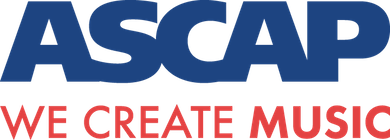
 The American Society of Composers, Authors and Publishers (ASCAP) reports revenues of more than $1 billion for calendar year 2014, according to their recently released financial statement. ASCAP also delivered royalty distributions of over $883 million to its songwriter, composer and music publisher members, up $32.3 million, a nearly 4 percent increase from 2013.
The American Society of Composers, Authors and Publishers (ASCAP) reports revenues of more than $1 billion for calendar year 2014, according to their recently released financial statement. ASCAP also delivered royalty distributions of over $883 million to its songwriter, composer and music publisher members, up $32.3 million, a nearly 4 percent increase from 2013.
According to ASCAP, the organization is the first PRO to earn revenues of more than $1 billion in a year.
ASCAP’s number of musical performances captured, identified, matched and processed for payment doubled from $250 billion in 2013 to $500 billion in 2014.
Contributing to the tally were songs recorded by Beyoncé, Beck, Jay Z, St. Vincent, Kendrick Lamar, Max Martin, Rubén Blades, Katy Perry, Iggy Azalea, Romeo Santos, Jessie J, Aloe Blacc, Sia, Meghan Trainor, Lady Antebellum, Lorde, Dr. Luke, Diplo, Calvin Harris and Brandy Clark.
ASCAP dramatically expanded its surveys of the most significant digital streaming services in 2014, including Apple iRadio, Pandora, Rhapsody and Spotify. The number of writers paid for performances on these services increased by 9 times from 2013. ASCAP identified more than 1.3 million unique works played on those services, 30 times more than in 2013.
Over 40,000 new members joined ASCAP in 2014, a 33 percent increase as compared to 2013. Among those new to ASCAP are CCM artist Lecrae, Vinylz, Andrew Bird, Becky G, Lorenzo Mendez of Original Banda El Limón, composers Jóhann Jóhannsson, Gustavo Santaolalla and Gustavo Dudamel.
ASCAP President Paul Williams commented, “Our songwriter and composer members depend on ASCAP to earn a living and it is our job to advocate and protect their rights across all media. We maintain a strong presence in Washington, D.C. to ensure they are fairly compensated for their creative work, which is the engine driving the entire industry. I am very gratified that we were able to deliver such strong financial results for the talented women and men who call ASCAP home. From our point of view, if we can ensure fair market rates for our members by working with the Department of Justice to modernize our outdated Consent Decree, then everyone wins—music creators, licensees and fans—because the value of collective licensing is that strong.”
“ASCAP had an incredibly successful 2014. We worked extremely hard and continually innovated in order to maximize the financial opportunities for our members in the face of an evolving and increasingly competitive global landscape. We implemented new revenue growth strategies and productivity improvement initiatives in order to deliver the best collective licensing value proposition at the lowest possible cost for all stakeholders,” said ASCAP CEO Elizabeth Matthews. “Our 2014 financial results clearly demonstrate that collective licensing is the most efficient licensing model available to creators and music licensees alike. The collective can accommodate big data growth of extreme scale at the lowest cost while also providing access to a broad, diverse and high quality repertory of music.”

Category: Featured, Organizations, Publishing
About the Author
Jessica Nicholson serves as the Managing Editor for MusicRow magazine. Her previous music journalism experience includes work with Country Weekly magazine and Contemporary Christian Music (CCM) magazine. She holds a BBA degree in Music Business and Marketing from Belmont University. She welcomes your feedback at jnicholson@musicrow.com.View Author Profile


